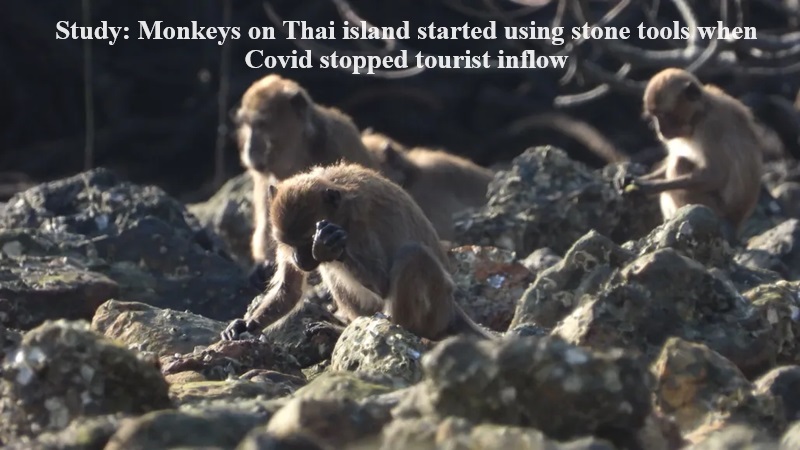
The adage “Life finds a way” resonates with the remarkable adaptability of nature when faced with challenges. The concept of adaptation has been integral to the survival of living beings for millions of years, leading to the emergence of fascinating phenomena. In a peculiar case, long-tailed macaques on Koh Ped, an island near Pattaya, Thailand, exhibited an adaptive behavior -tool use ,during the Covid-19 pandemic when tourism restrictions disrupted their food source.
Koh Ped, a popular tourist destination, was frequented by visitors who often fed mangoes, cucumbers, and nuts to the common long-tailed macaques (Macaca fascicularis fascicularis). However, the pandemic severely impacted the tourism industry, leaving the monkeys without their usual source of sustenance.
A research team, led by Suchinda Malaivijitnond from Chulalongkorn University in Bangkok, had been studying these monkeys for decades and had not observed tool use among them before the pandemic. Upon returning to the island last year, the researchers discovered a surprising development.
With the monkeys compelled to become more self-reliant for food, some began using rocks as tools to open sea shells. Initially, only two monkeys were observed using stones for this purpose, but upon a subsequent visit this year, the researchers found that the behavior had spread throughout the population.
Jonathan Reeves from the Max Planck Institute for Evolutionary Anthropology noted, “Several other groups of primates use stone tools, but we haven’t been able to study the origins of this behavior before.” He emphasized the rarity of witnessing the emergence of a new behavior in a population.
The monkeys’ approach involved placing the shell on the ground, selecting a rock of suitable size, lifting it to shoulder level, and dropping it onto the shell. While the method may seem rudimentary, it exemplifies how our biological relatives in the animal kingdom improvise and adapt in the face of adversity. The study documenting this behavior was published in Science Advances in March of this year.

Post Your Comments